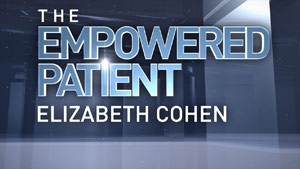 When “Doc Tom” Ferguson first spoke of e-patients in the 1990s – empowered, engaged in their care, etc – those pioneering patients tended to be online. But today almost everyone’s online, empowered or not. In fact being empowered is a separate issue. And today’s “Empowered Patient” column by CNN’s Elizabeth Cohen illustrates that, by highlighting three Hollywood movies about patient engagement, all pre-World Wide Web.
When “Doc Tom” Ferguson first spoke of e-patients in the 1990s – empowered, engaged in their care, etc – those pioneering patients tended to be online. But today almost everyone’s online, empowered or not. In fact being empowered is a separate issue. And today’s “Empowered Patient” column by CNN’s Elizabeth Cohen illustrates that, by highlighting three Hollywood movies about patient engagement, all pre-World Wide Web.
She called this week – she was doing a piece for Oscar week, and the King’s Speech struck her (correctly) as a story of an empowered patient. Excerpts from today’s piece, “The Empowered Patient” Goes To Hollywood:
[Elizabeth was] a wife bravely defying the medical establishment and royal rules to get her husband the best medical care.
It’s a point that hit Dave deBronkart, co-chairman of The Society for Participatory Medicine, over the head when he saw the movie.
“The queen, who of course wasn’t the queen yet, had the good common sense to trust her instincts and not be limited to treatments that her gut said were no good, and that experience showed her were not doing any good,” deBronkart says.
Elizabeth, deBronkart says, was truly an empowered patient.
“Here she goes to a neighborhood no one would expect her to go and get the care her family needed. She trusted her own instincts. I was so proud of her,” he adds. “She didn’t have any medical training but she made a difference in her husband’s health. And you know what’s really cool? She did it without the internet.”
Cohen cites two other movies with empowered patient aspects, and goes on to interview David Seidler, who wrote the script for The King’s Speech.
Can I just say, what a thrill it is to have the Society for Participatory Medicine in a story like this. And thanks to Elizabeth; until she asked, I hadn’t realized this was worth talking about!
Here’s the piece. Thanks, Elizabeth!


“Until she asked, I hadn’t realized this was worth talking about!”
On the contrary, that’s what striked me in this film! First, the Queen discretly gathered information about the best care for her husband’s ailment and then disguised as an upper middle class lady dared out of the palace to go and personally meet the speech trainer. Don’t forget that we talk about early 1900!!
Isn’t it that what an e-patient also today does? He/shes seeks information on his/her own (doctors in our part of world would never advise a patient to look into a book or the internet to learn a little bit about their disease) asking other people, browsing information on researchers and physicians with specific expertise, then going to meet the one they selected.
Also worth noting is her firmness on going on with the training. So in my opinion she is an excellent example of e-carer.
That’s what I was talking about with my friends, and they considered the film just hype to show how good and caring the queen was. They couldn’t grasp what you and me are seen in this film and I am afraid many cannot see it. They consider this excellent film as an effort to make the royal family look more human, more down to earth. It might be so, but the fact is that the queen acted as a model e-carer.
To be clear, Kathi, I agree with you – I was just surprised to notice that when I saw the movie, Elizabeth’s actions simply seemed natural to me. I didn’t even think about blogging it!
That’s one difference between Elizabeth (Cohen) and me – she’s keenly aware of the public’s perspective.